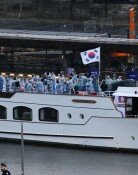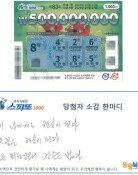Private Insurers to Lower Coverage
Property and liability insurers have covered all medical expenses for subscribers. However, the insurance coverage will soon be lowered.
The Strategy and Finance Ministry, Health and Welfare Ministry, and Financial Services Commission agreed to lower private insurance coverage from 100 percent to 70-80 percent.
The policy will be applied from a specified date. But, existing subscribers will not be subject to the new policy. According to the nations insurance industry, 10-20 percent of Koreans subscribe to private property and liability insurance.
The National Health Insurance Corporation covers around 60 percent of medical expenses for some illnesses including colds, which are subject to treatment and whose medical expenses, are set at the low to mid-level.
Samsung Fire and Marine Insurances All Life Medical Insurance and Hyundai Marines Happiness Insurance cover 40 percent of medical expenses imposed on patients with diseases subject to treatment and 100 percent of exceptional items such as MRI scanning.
The Health Ministry argued, Since subscribers to private health insurance have not been burdened to cover medical expenses, they have unnecessarily seen doctors, aggravating the finances of the NHIC. Private insurers should either stop covering user charges or lower insurance coverage. The Finance Ministry and the commission have also discussed measures to regulate insurance coverage, saying, Excessive insurance coverage may hurt the soundness of insurers. The Health Ministry argued that insurance coverage should be lowered to 60 percent of user charges while the Finance Ministry and the commission said insurance coverage should be lowered to 90 percent of user charges. Eventually, they agreed to cut insurance coverage to 70-80 percent.
Some civic organizations have raised the suspicion that the government is attempting to revitalize private health insurance as a preliminary step to privatizing the nations health insurance. However, the government sees the measure as a way to regulate private health insurance, not revitalize it.
A source from the Health Ministry said, Despite a series of explanations, civic organizations have continuously raised the same suspicion. I hope the regulation will be a chance to ease groundless suspicions.
Some civic organizations have argued that the governments decision to allow the NHIC and insurers to share disease data might result in a leakage of personal information. In response, a government official said, The shared data will encourage insurers to set the premium at a reasonable level. No personal data will be leaked.
In the meanwhile, insurers are strongly resisting the governments regulations.
A source from a property and liability insurer said, At the request of the government, the Korea Development Institute conducted research. The KDI concluded in December that there was no evidence that subscribers to private insurance see doctors more frequently than non-subscribers. It is groundless to argue that subscribers to private insurance are responsible for worsening the finances of the NHIC.
peacechaos@donga.com







